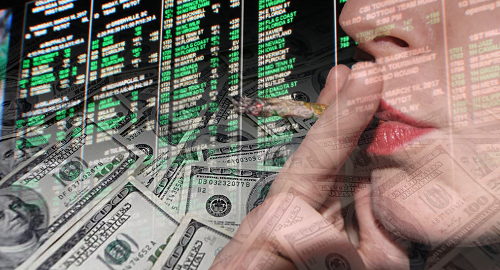 Nevada casinos posted flat gaming revenue in October, thanks in part to the fallout from that month’s mass shooting at the Mandalay Bay resort.
Nevada casinos posted flat gaming revenue in October, thanks in part to the fallout from that month’s mass shooting at the Mandalay Bay resort.
Figures released Thursday by the Nevada Gaming Control Board show statewide casino gaming revenue of $988.7m in October, up 0.3% from the same month last year. The sum was also only moderately higher than September 2017’s $980m.
Casinos on the Las Vegas Strip played spoiler in October, as gaming revenue declined 6% to $528.7m. Numerous Strip casino operators had commented on temporary dips in visitation and hotel bookings following the October 1 mass shooting that killed 59 individuals, including the gunman.
By contrast, Downtown Las Vegas saw its gaming revenue improve nearly 10% to $63.6m, while North Las Vegas shot up 11.6% to $27m. Statewide revenue numbers for first four months of the state’s fiscal year are up nearly 3.8% to just under $4b.
The state’s slot machines had a good month, with revenue improving 3.8% to $655.5m., while overall games and tables declined 6% to $333.2m. Most of the table tallies were in negative territory, including blackjack ($89.4m, -11.4%) and craps ($29.4m, -3.9%).
On the flip side, baccarat revenue nudged up 0.6% to $87.7m while roulette gained 9.8% to just under $33.3m. The state’s poker tables were relatively flat at $8.7m.
Over at the sportsbooks, the state handled $522m worth of wagers, a new all-time record for the month of October and the second straight month in which handle has eclipsed half a billion dollars. The record came despite one fewer weekend of NFL action, although this was countered by one extra week of NBA activity.
That said, the ongoing trend of NFL favorites covering the spread meant October’s sportsbook revenue took a beating, falling more than one-quarter year-on-year to a still impressive $31.5m. Football betting revenue posted the biggest decline, falling 47.6% to $15.7m.
That extra NBA week pushed basketball revenue up nearly 118% to just under $5m, while playoff action boosted baseball revenue by 38.5% to $6.3m. Sports parlay cards also had a solid month, rising more than one-quarter to $4.9m.
NEVADA + MARIJUANA = NEVAJUANA?
On Wednesday, the Nevada Gaming Policy Committee met with industry stakeholders to discuss the thorny issue of what types of relationships casinos might be allowed to enter into with their counterparts in the burgeoning legal marijuana industry.
Nevada voters approved recreational marijuana use one year ago, and legal sales of marijuana products to adults 21 years of age or over officially got underway on June 30. But federal anti-marijuana laws remain on the books, and with many casino operators doing business in other states where marijuana remains illegal, the industry continues to seek guidance on how to walk this increasingly blurry line.
Among the main questions facing the industry is whether the state should allow gaming licensees to host marijuana-themed conventions. Nevada Gaming Commission Chairman Tony Alamo, who had opposed any linkage of gaming and pot, told local media that he’d had a change of heart on this issue, provided there was no sale or possession of pot at a casino-hosted convention.
The Policy Committee is scheduled to meet again in February, and Gov. Brian Sandoval suggested he’d like to have policy recommendations worked out by that date.
However, Wednesday also saw US Attorney General Jeff Sessions suggest that the Department of Justice was preparing to take a tougher stance against states’ pursuit of legal marijuana. Sessions told reporters that marijuana use “represents a federal violation, which is in the law and is subject to being enforced.”
Sessions told reporters that the DOJ was looking into the marijuana issue “very hard right now, we had a meeting yesterday and talked about it at some length.” Sessions claimed the DOJ was “working our way through to a rational policy,” but declined to clarify what that policy might mean for states that have already approved pot use.